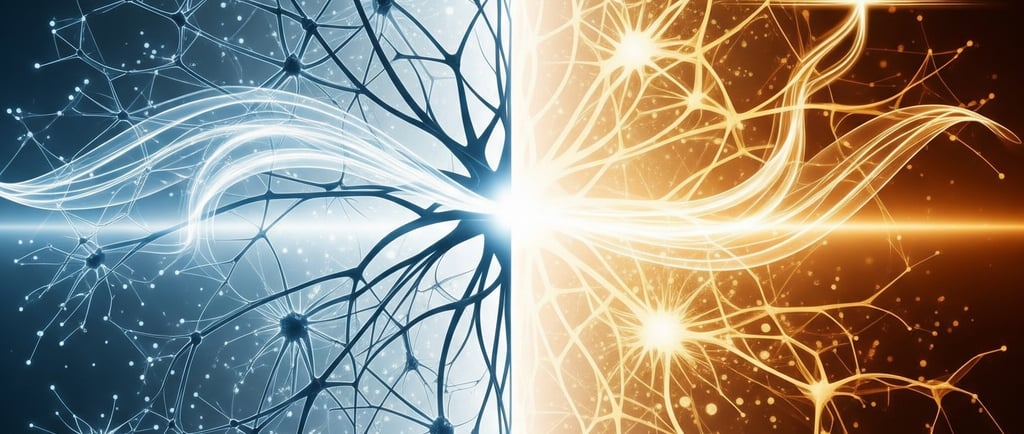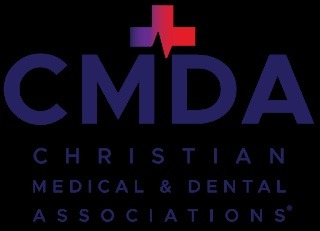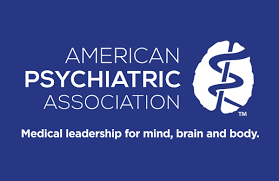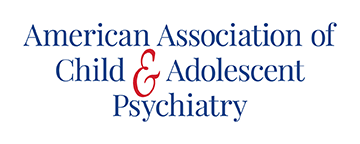After-hours triage: Open
The Placebo Response: Divine Design or Neural Noise?
A faith-informed psychiatrist's perspective on presence, healing, and the mysterious power of expectation
PSYCHIATRYMENTAL HEALTHMEDICATIONSETHICSFAITH
Steve Chennankara, D.O
6/3/20256 min read


Here is the link to the TL;DR version
During my neurology rotation, I witnessed something that has stayed with me for years. A patient was brought to the emergency department actively seizing—violent, rhythmic shaking that had persisted for several minutes. The attending neurologist, after a brief assessment, loudly asked the nurse to prepare "Nomasaline," announcing to the patient and family that this powerful new antiepileptic would stop the seizure immediately.The nurse returned with a syringe, administered the medication through the IV, and within moments, the shaking stopped completely. The patient lay still, breathing normally, crisis averted.Later, away from the patient's room, the attending explained what had happened. The seizure pattern suggested pseudoseizures—neurologically real but not epileptic in origin. "Nomasaline" was his creative pronunciation of "normal saline"—salt water. The patient's brain had stopped the seizure not because of any pharmaceutical intervention, but because of expectation, authority, and hope delivered through a medical ritual. I left that shift deeply unsettled. Had we deceived the patient? Had we practiced good medicine or elaborate theater? Was this ethical healing or manipulation?
In Part 1 of this series, we explored the remarkable phenomenon of the placebo response—how inert treatments can produce real, measurable healing. Now, years later as a practicing psychiatrist, that moment in the neurology unit has led me to more controversial territory: What if the placebo response isn't just psychological noise to be filtered out, but evidence of something far more profound?
The Rising Tide of Placebo
Recent clinical trials reveal a striking trend: placebo response rates are climbing, particularly in psychiatric conditions. In antidepressant trials, placebo responses now account for 35-40% of observed effects—a doubling from decades past. This surge is making it increasingly difficult to demonstrate the superiority of new medications over sugar pills.
Why this dramatic shift? Researchers point to several factors: heightened patient expectations, more comprehensive trial designs, and—here's what catches my attention—increased interactions with healthcare providers during studies. What exactly are these "increased interactions" if not moments of focused attention, empathy, presence, and communicated hope? Consider the clinical trial participant: they're seen regularly, asked detailed questions about their experience, and carefully monitored. They exist within a context of hope, believing they're part of a cutting-edge effort to find healing.
These aren't inert variables—they're potent activators of something deeper within the human experience.
Reframing the "Problem"
What if we've been approaching this backwards? Instead of viewing the placebo response as an inconvenient confound to be controlled for, what if it represents our built-in capacity for healing—a system designed to respond to hope, trust, and meaning? From a Christian perspective, this begins to look less like a research problem and more like divine architecture. When Jesus said, "Your faith has healed you" (Mark 5:34), was He pointing to some mystical override of natural law, or revealing how the system was designed to work all along?
The Spiritual Parallels in Modern Treatment
This reframe becomes compelling when we examine today's most innovative psychiatric treatments:
Psychedelics dissolve the ego and induce experiences of awe and transcendence—remarkably similar to what happens during deep worship or divine encounter.
Somatic therapies help regulate the nervous system through felt safety and embodied presence—what believers have long experienced through prayer, repentance, and communal support.
Mindfulness practices quiet mental chatter and cultivate present-moment awareness—spiritual disciplines that monastics have refined for centuries.
Ketamine, TMS, EMDR, and trauma-informed care all demonstrate enhanced effectiveness when expectation, trust, and symbolic meaning are present—the same elements that faith naturally activates.
These aren't just technical interventions. They're knock offs of healing systems that may have been part of the original design.
The Neuroscience-Theology Dialogue
Neuroscience offers robust explanations for placebo effects. When patients expect relief, the prefrontal cortex modulates limbic responses, releasing dopamine and endogenous opioids that mimic active treatments. Oxytocin released during supportive interactions enhances trust and reduces stress.
Secular scientists might argue that spiritual practices like prayer are merely psychosocial modulators, activating the same circuits as group therapy or motivational interventions. This perspective, while scientifically rigorous, focuses exclusively on the "how" while dismissing questions of "why" or ultimate purpose.
A Christian worldview doesn't reject neuroscience—it contextualizes it within a larger framework of meaning and purpose. While neuroscience maps the mechanisms, theology asks why these mechanisms exist in the first place. Scripture teaches that humans are created in God's image (Genesis 1:27), endowed with capacities for trust and hope that reflect our relational Creator. These capacities, observable in placebo responses, are arguably intentional features designed for healing rather than evolutionary accidents.When Jesus declared "Your faith has healed you," He may have been pointing to faith as a conduit for divine restoration. Neurobiologically, faith activates reward and pain-modulation pathways. Theologically, it connects us to God's healing power and presence.
The placebo response isn't accidental—it's architectural.
Clinical Implications and Ethical Boundaries
This understanding transforms how we approach treatment. When clinically appropriate and aligned with a patient's existing worldview, thoughtfully engaging their faith isn't adding something extra to "real" medicine—it's activating potent, built-in healing systems through authentic relationship and spiritual congruence. For patients who share this framework, prayer, shared faith, Scripture, and spiritual identity can become powerful activators of the human healing response. But the underlying "grammar" of healing—authentic presence, hope, meaning, and genuine care—operates across all worldviews.
Yet leveraging these pathways requires wisdom and ethical grounding:
The temptation of manipulation. Exaggerating treatment benefits to boost expectation undermines trust and can lead to devastating disillusionment. Healing must be grounded in truth, not false hope.
The idolatry of technique. Emphasizing placebo pathways while forgetting their divine source risks making techniques into idols, prioritizing human methods over divine power.
Spiritual misalignment. Using rituals or beliefs disconnected from Christ may activate neural pathways but miss the deeper transformation God intends.
The Provocative Conclusion
Here's my controversial take: some of what psychiatry celebrates as "cutting-edge" treatment may simply be knock offs of what Scripture, tradition, and spiritual practice have facilitated all along—healing through presence, faith, meaning, and love. This doesn't diminish these new modalities. Rather, it suggests they work precisely because they tap into systems that were already built-in. The so-called placebo response may be the neurobiological echo of divine design—not a loophole in the system, but the system itself.
It's About Alignment, Not Leverage
The placebo response is not something to be leveraged—it should be understood as an integrated healing response that ensues when spiritual and relational care align with evidence-based treatment.
This brings me back to that neurology unit years ago. While "Nomasaline" stopped the seizure, the intervention troubled me because it compromised the patient's dignity through deception. The attending physician wielded the power of expectation and authority by lying to a vulnerable person in crisis.
There's a profound difference between activating healing pathways through authentic hope and manipulating them through fabricated authority. The patient deserved to know they were receiving saline, to understand their condition, and to participate meaningfully in their own care. Healing built on deception, no matter how well-intentioned, violates the fundamental dignity of persons created in God's image.
The Deeper Invitation
The placebo response forces us to confront an uncomfortable possibility: what if the healing we're chasing with increasingly sophisticated interventions has been accessible all along through the very relational and spiritual dimensions we've systematically stripped from modern medicine? These rising placebo rates aren't just a research problem—they're a mirror reflecting back what we've lost. Every time a sugar pill rivals our best pharmaceuticals, every time human connection outperforms our protocols, we're being invited to remember that healing was never meant to be purely technical. The question isn't whether we should leverage these pathways, but whether we have the wisdom to realign with how healing actually works. For some patients, this means faith explicitly engaged. For all patients, it means recovering the fundamental grammar of authentic presence, truthful hope, and genuine human connection that makes healing possible.
What are your thoughts on this alignment of faith and science in understanding healing? How do we honor both effectiveness and human dignity in our care? I'd love to hear your perspective in the comments below.
TL;DR Version
🧠 The "Nomasaline" Incident
Doctor stops seizure with fake drug (actually salt water)
Patient's brain does all the work because it believes help is coming
Psychiatrist has existential crisis: "Are we healers or magicians?"
📈 Plot Twist: Placebo Power is RISING
Sugar pills now work 35-40% as well as real antidepressants
Why? More doctor-patient face time = more hope activation
Clinical trials accidentally became hope-delivery systems
🤔 The Big Reframe
What if placebo response isn't a bug—it's a feature?
Maybe our brains came pre-installed with healing software
Faith might be the ultimate activation code
🔥 Modern Therapy = Ancient Practices 2.0
Psychedelics → Transcendent worship experiences
Mindfulness → Monastery meditation (but with apps)
Somatic therapy → Prayer + embodied presence
Ketamine/EMDR → All work better with hope and meaning
Hot take: Cutting-edge psychiatry might just be expensive knock offs of what Scripture figured out first 👀
⚖️ The Ethics Check
Good: Activating hope through authentic relationship
Bad: Lying to patients (even if it "works")
Ugly: Making techniques into idols instead of tools
The goal: Truth + hope, not tricks + manipulation
💡 The Bottom Line
Your brain's placebo pathways might be neurobiological echoes of divine design. Instead of getting sneakier with deception, maybe we should get better at authentic healing that honors both science and the human soul.The real question: What if "Your faith has healed you" wasn't mystical override but user manual? 🤯


Contact
Connect
Call: (817) 518-4028
© 2025. All rights reserved.
Location Details
Address
Ste 105, 5004 Thompson Terrace, Colleyville, TX, 76034






Fax: (817) 259-2614